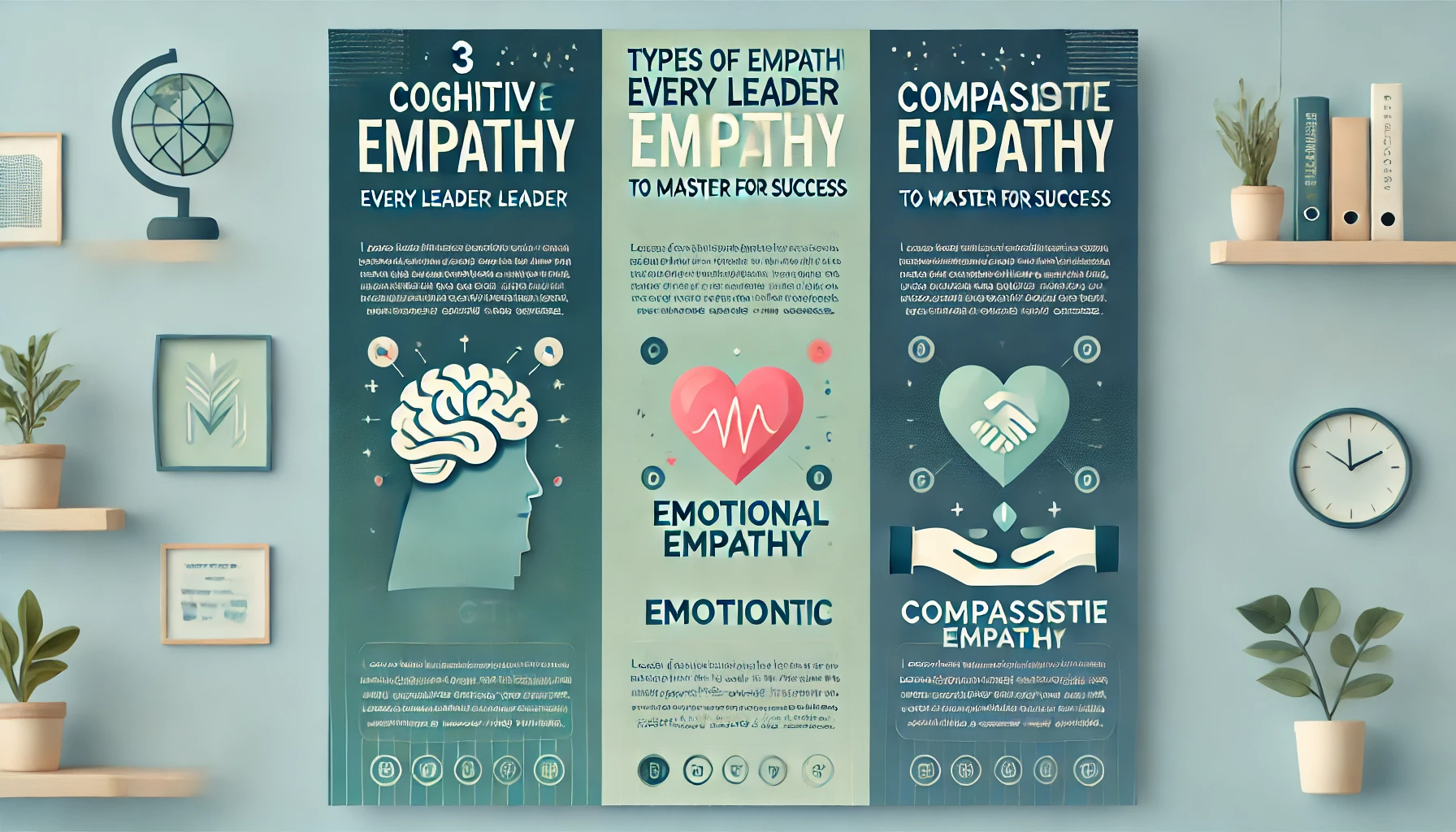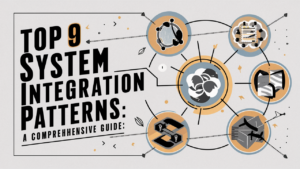🧠 3 Types of Empathy Every Leader Needs to Master for Success
Empathy plays a crucial role in effective leadership. It helps leaders recognize their team’s feelings, thoughts, and perspectives, allowing them to foster stronger connections and create a supportive, understanding environment. In the workplace, this understanding can build trust, enhance communication, and motivate teams to achieve shared goals.
Leaders need to cultivate and practice different forms of empathy, especially when leading diverse teams. Let’s explore the 3 types of empathy that every leader must know—Cognitive, Emotional, and Compassionate Empathy—and how each can impact your leadership approach.
🧠 1. Cognitive Empathy: Understanding Without Feeling
Cognitive empathy is about understanding what someone else might be feeling or thinking without necessarily experiencing those emotions yourself. It allows leaders to comprehend how their team members might perceive certain situations and respond in ways that acknowledge those thoughts and feelings.
📌 Description:
The ability to understand and recognize the emotions or perspectives of others.
Does not involve emotionally feeling what others are going through but instead offers logical and intellectual insight into their emotional state.
📝 Example:
A leader notices that a typically vocal team member has been unusually quiet during meetings. By employing cognitive empathy, the leader deduces that the employee might be feeling ignored or undervalued. To resolve the situation, the leader opens the floor for the team member to contribute their ideas, creating more opportunities for inclusion.
🎯 Why It’s Important:
Cognitive empathy allows leaders to intellectually connect with team members, helping to adjust strategies or communication styles. It is especially useful in problem-solving and creating an environment where everyone feels heard.
💬 2. Emotional Empathy: Feeling What Others Feel
Emotional empathy goes beyond understanding and involves actually feeling what another person feels. It’s about sharing emotions, as if their experiences resonate deeply with you. This type of empathy helps leaders connect emotionally, which can be critical during high-stress situations.
📌 Description:
This type of empathy allows you to feel what another person is feeling, almost as if their emotions are contagious.
It’s a powerful tool for creating an emotional bond, fostering trust and emotional support.
📝 Example:
During a company-wide restructure, a leader feels the team’s stress and anxiety. Recognizing this, the leader openly addresses the situation, shares their own feelings of concern, and offers understanding. This creates a shared emotional experience, showing the team that their emotions are valid and that the leader cares deeply about their well-being.
🎯 Why It’s Important:
When leaders demonstrate emotional empathy, it builds a deeper connection with their team. Employees are more likely to feel supported, reducing stress and fostering loyalty. It also humanizes leadership, making it easier for team members to relate to their leaders.
💖 3. Compassionate Empathy: Feeling and Taking Action
Compassionate empathy is the most proactive form of empathy. It involves understanding someone’s feelings, sharing them, and being moved to help. Compassionate empathy is where leadership takes action—not only recognizing emotions but also offering support or solutions to help those in need.
📌 Description:
Compassionate empathy means you understand and feel someone’s pain, but more importantly, you are driven to act to alleviate it.
It’s a combination of cognitive and emotional empathy with a focus on offering help.
📝 Example:
A leader learns that an employee is struggling with personal challenges, such as a family illness. Instead of just offering sympathy, the leader responds by providing flexible work hours or additional support to reduce stress, ensuring the employee has the space and resources to manage both work and personal responsibilities.
🎯 Why It’s Important:
Compassionate empathy drives leaders to take action based on their understanding of an employee’s needs. This form of empathy shows that you genuinely care about your team’s well-being, which in turn can improve morale, boost productivity, and foster a culture of support and trust.
🛠️ How Leaders Can Develop Empathy
Being empathetic doesn’t always come naturally, especially in high-pressure leadership roles. However, leaders can take practical steps to nurture and enhance their empathy:
Listen Actively: Pay close attention when your team speaks. Active listening shows you value their perspective and are genuinely interested in what they have to say.
Ask Open-Ended Questions: Encourage your team to share their thoughts and feelings by asking questions that open up dialogue rather than close it off with yes/no answers.
Show Vulnerability: Sometimes, leaders shy away from showing emotion, but vulnerability fosters trust. Share your own experiences or challenges to create a safe, open space.
Observe Non-Verbal Cues: Not all feelings are expressed through words. Body language, facial expressions, and tone can offer insights into how someone is feeling.
Offer Support: Be proactive. If you notice someone struggling, don’t wait for them to ask for help—extend a hand and show you care.
🌟 Why Empathy is Key to Leadership Success
Empathy empowers leaders to connect with their teams on a deeper level. By recognizing and understanding your team’s emotions, you can build a supportive environment that fosters collaboration, loyalty, and engagement. Whether you’re practicing cognitive empathy to address unspoken concerns, emotional empathy to connect in times of stress, or compassionate empathy to provide tangible help, empathy is an essential leadership skill that can drive both personal and team success.
Remember, empathy is more than a soft skill—it’s a strategic advantage that builds a cohesive, motivated, and high-performing team.

























